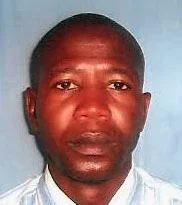Afolabi Gambari
By announcing the withdrawal of the subsidy on petrol on the very first day in office on May 29 2023, without any forewarning whatsoever, President Bola Tinubu had unwittingly sentenced millions of Nigerians into piecemeal poverty and hopelessness. It was an act considered callous by the many who immediately began to feel the pain.
Millions could not afford the prices of goods and services. As many jobs were lost and there was an increase in the number of out-of-school children as parents groaned in penury. The social fabric of the country faced severe threats as many marriages collapsed like a pack of cards. All the foregoing may have been painted in the past tense. But it is only just as sad that the dreadful conditions prevail. Of course, the hapless people of the country would wish that they knew when the past could subside. But no! The people have always been kept in suspense; the more to subjugate them further.
It seems President Tinubu is either not aware of the effect of his May 29 2023 action on the populace or he is aware but just does not care. But the latter seems true, although it would appear to have been exaggerated, especially with regard to the fact that he is not disturbed by any public anguish towards his administration’s policies.
Yet, many could still be in doubt of his uncaring stand. But by Monday, December 23, he laid himself bare in his maiden media chat since assuming office some 20 months before. He said he had “no regret whatsoever” in removing the subsidy on petrol, despite plunging the country into turmoil. He said the petroleum subsidy removal was “necessary to prevent the country from bankruptcy”. Granted that no nation or its leader would sit by and watch the country go bankrupt. So, it is to do everything to chase away bankruptcy.
But when he said the subsidy removal was necessary “to prevent smugglers from taking what belonged to Nigerians”, he burrowed into the past lack of ingenuity by the government in defending the removal. He, therefore, indicted himself and his security service whom, ironically, he said in the maiden media chat that he trusted. No international smuggling of goods can succeed without the connivance of the security forces of a country. How, then, can he visit the sin being consciously and deliberately committed by the security forces on the innocent citizens?
It may sound illogical or hasty. But this “no regret” stand of Tinubu portends yet another harsh time ahead of the long months of the new year. It is just as well that this note of warning is being sounded early. There are still no indications that the people matter in this administration, safe for what government spokespersons have been saying to make the gullible feel good.
No less a person as Mr President has refused to admit that hunger stalks the country, despite the hunger strike that greeted his administration in August last year, which manifested in the harvest of deaths that accompanied the distribution of palliatives last month in Ibadan, Okija and Abuja where more than 60 Nigerians, including women and children, lost their lives while struggling to procure food in scuffling circumstances.
The figures support the fact that Nigeria’s 2024 Global Hunger Index (GHI) score is 28.8, placing the country 110th out of 127 countries, an indication that Nigeria has a serious level of hunger. The GHI is calculated on a scale of 0 to 100, with 0 being the best possible score and 100 being the worst. The score is also based on four indicators: undernourishment; the percentage of the population that lacks enough calories, child stunting; the percentage of children under five who are too short for their age, child wasting; the percentage of children under five who are too light for their height, child mortality; the percentage of children who die before their fifth birthday. According to the Food Portal, Nigeria has steadily been reducing its Global Hunger Index scores since 1990, but the severity of hunger in the country is deemed serious.
Although there are challenges that include insecurity, poor economic conditions, political tensions, disruption of traditional agricultural livelihoods, lack of non-farm opportunities, high transportation costs and disruption of global supply chains, Nigeria has become one of the world’s biggest importers of food staples, particularly rice and wheat. Despite these imports, however, more than a quarter of Nigerians younger than five suffer from malnutrition.
But at the aforementioned media chat, Tinubu rather blamed the deaths on organizers of the palliatives. “I have been giving to the less privileged at my house on Bourdillon Street, Ikoyi, Lagos for the past 25 years and we have never experienced a stampede. If you know you don’t have enough to give, do not publicize it,” he said.
It would be thought that the admittance of a challenge is the first step of tackling the challenge. The latest deaths that resulted from scuffles over food should have served as a veritable indicator of hunger in Nigeria. Well, except that Tinubu thinks otherwise and the thinking would probably remain till yet another tragedy surfaces as the hungry get desperate for food.







